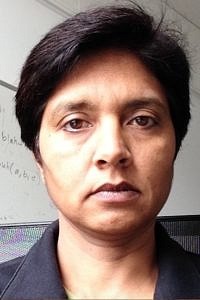Anshu Dubey
Anshu Dubey
Biography
Anshu Dubey is a computer scientist in the mathematics and computer science division at Argonne National Laboratory and a Senior Scientist at large at the University of Chicago. She leads the earth and space sciences sub-area of applications in the US-DOE exascale computing project. She is interested in all aspects of HPC scientific software including the numerics, design and productivity issues. She is the chief software architect for FLASH, a multiphysics HPC software that is used by multiple science and engineering domains.
The FLASH Code and Two Decades of Science
FLASH is a component-based multiphysics high performance computing (HPC) scientific simulation software package with a wide user base. It has evolved into a modular and extensible scientific simulation software system over two decades of its existence. During this time it has been cumulatively used by over a thousand researchers to investigate problems in astrophysics, cosmology, solar physics, computational fluid dynamics, high-energy density physics, and in some areas of basic physics, such as turbulence. The code started its life as an amalgamation of already existing software and has evolved through a mixture of incremental and deep infrastructural changes. In the process, it has undergone four major revisions, three of which involved a significant architectural advancement. Along the way, a software process evolved that addresses the issues of code verification, maintainability and support for the expanding user base. The software process also resolves the conflicts arising out of being in development and production simultaneously with multiple research projects, and between performance and portability. This presentation will describe the architecture, the capabilities, the software process, and the research communities of the FLASH code, including examples of simulations from various research communities in terms of components utilized and customizations done. Additionally, the synergies that exist among FLASH’s communities and how they enhance the value of the code to science overall will be highlighted.
